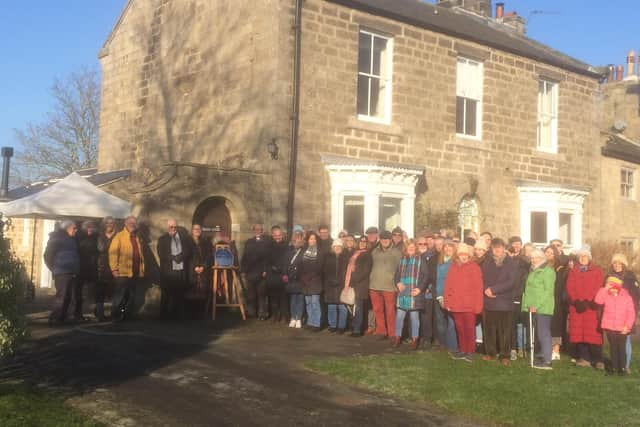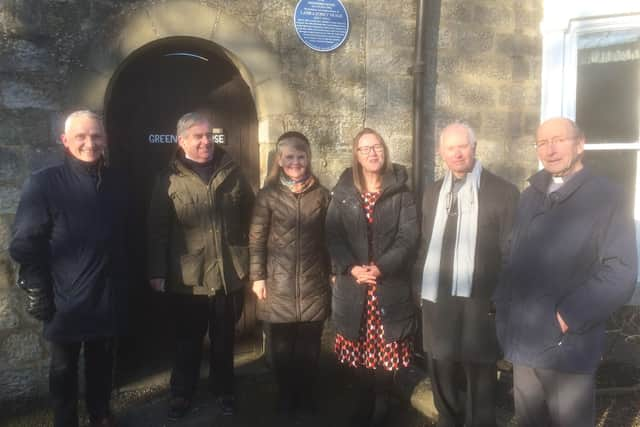Hampsthwaite commemorates North Yorkshire’s first female doctor Laura Sobey Veale
and live on Freeview channel 276
The new plaque will identify Greenside House (opposite the village school) as the birthplace and childhood home of Laura Sobey Veale (1867-1963) who was the first Yorkshire woman to become a doctor.
County Councillor Paul Parker said: “We had a very successful ceremony today with nearly fifty people attending in bright winter sunshine.
Advertisement
Hide AdAdvertisement
Hide Ad“After my introductory remarks explaining the work of the Hampsthwaite Village Society and, particularly, its blue plaque scheme, attendees were addressed by Sarah Armstrong who outlined Dr Veale’s contributions''


Gina Crowther, member of Hampswaite History Group and Computer Science Teacher, said: “On hearing Sarah Armstrong speak about Laura’s life, I have only admiration and respect for such an inspirational lady.
“We hadn’t realised what an impact she must have made back then, breaking barriers as the first Yorkshire woman to qualify as a doctor.”
Dr Veale’s achievements were also acknowledged by North Yorkshire County Council's Sons and Daughters campaign which saw the clinician make the top ten in their public vote.
Advertisement
Hide AdAdvertisement
Hide AdDr Veale took the number one spot as one of North Yorkshire's most influential figures in medicine.


Widely respected as the first female doctor, she successfully broke through a barrage of hostility and was denied entry to Leeds Medical School in the late 1800’s.
Although the age was filled with innovation and progression, the attitude towards women who entered medicine was notoriously unwelcoming.
Dr Veale came from a family of doctors and persisted by travelling to London despite the attitudes of the time, where she was accepted to study at the University of London.
Advertisement
Hide AdAdvertisement
Hide AdShe qualified as a doctor in 1904, yet this proved not to be enough for the young pioneer.
Dr Veale was compelled to improve healthcare for women, children, and people living in the more deprived areas of Yorkshire.
After returning to Yorkshire her first post was in Leeds at The Hospital for Women and Children.
Six months later she had set up her own general practice in Harrogate on Victoria street.
Advertisement
Hide AdAdvertisement
Hide AdHer determination to improve healthcare for women and children had become a driving force in pursuit for change, fighting for 25 years to create a maternity department in Harrogate Hospital, which was eventually opened in 1937.
Her passion to fight for women’s health has cleared the pathways for future generations of female doctors.
Ms Crowther said: “Laura Veale's determination and resilience in the face of adversity is a testament to the impact one person can have in overcoming societal prejudices.
“Her accomplishments serve as a reminder of the importance of following one’s passion and standing up for what we believe in.”
Advertisement
Hide AdAdvertisement
Hide AdNow considered a feminist icon, the plaque is a reminder of the numerous glass ceilings she shattered along her way.
Ms Crowther said: “The presence of a plaque in Hampsthwaite honouring Dr Laura Veale will likely have a significant affect on the community.
“It serves as a symbol of pride and recognition for the contributions and achievements of a local resident.
“It may also serve as a source of inspiration for young girls and women in the village, encouraging them to pursue their goals and dreams regardless of discrimination or expectations.”